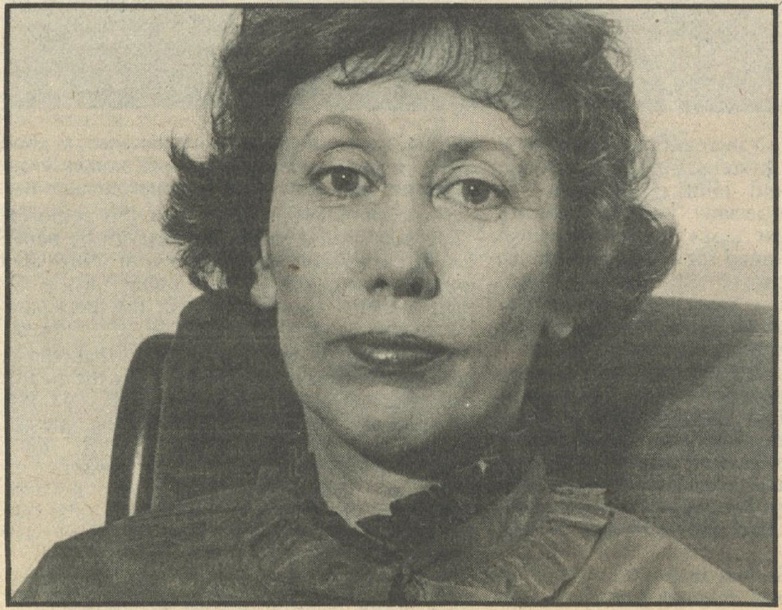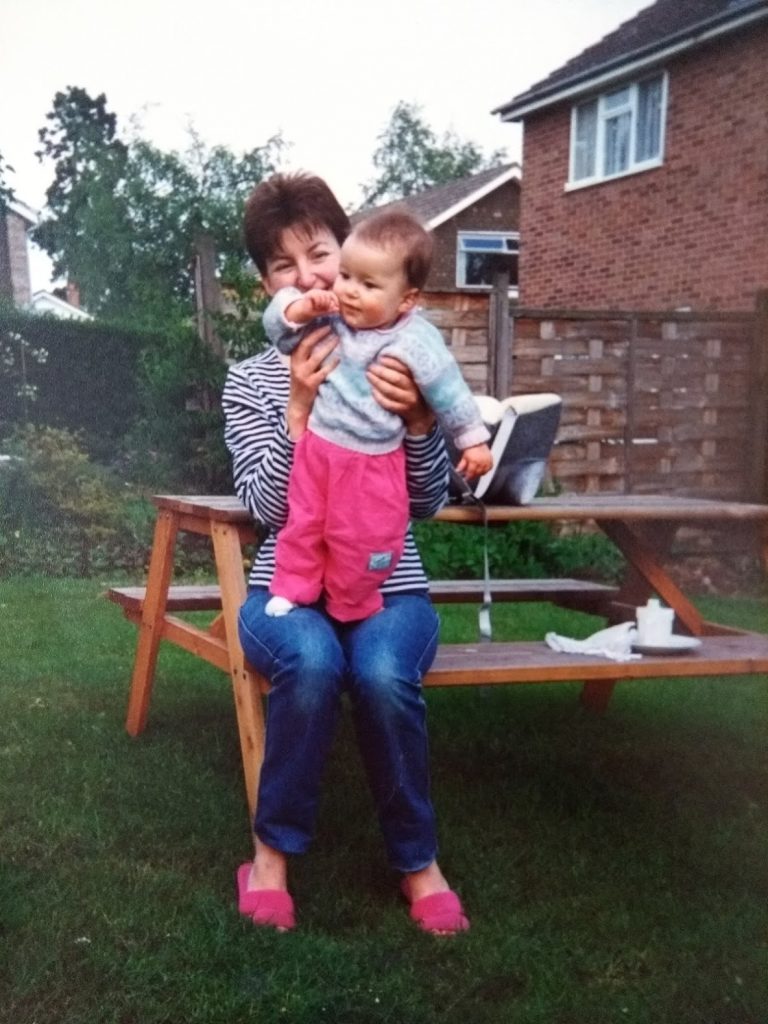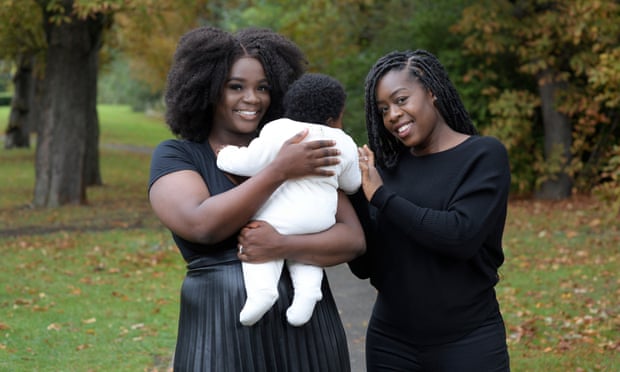Written by Kate Mahoney, with Louise Mahoney
Last year, I conducted research on the women’s health activist Jean Robinson. Robinson became chairperson of the Patients Association in the early 1970s.[1] The organisation, which still exists today, fought against the widespread assumption that doctors knew best, and that patients should simply do as they say.[2] Whilst in her role, Robinson received numerous letters from women writing about their traumatic experiences of childbirth. Their accounts focused on new technologies, such as episiotomy and chemical induction, that obstetricians were increasingly using to actively manage their labour.[3] Previously only applied in emergencies, from the 1960s onwards, these techniques became routine practice. In 1965, 15% of births were induced. This figure had risen to 41% by 1974.[4] Many obstetricians promoted these technologies because they increased the pace of labour, supposedly aiding mother and child by reducing the mental and physical impact of a long birth.[5] However, Robinson collected some 800 letters relating to induction alone. Women believed that they were induced too early. “They said it would take too long without the drip”, one woman stated. “‘Too long for whom?’ I wondered”.[6] Another felt completely out of control. “I feel I didn’t have my baby at all”, she wrote. “He was produced for me with the aid of drugs and machinery”.[7] The letters demonstrated that induction was extremely painful and distressing, and that women’s feelings both during and after the procedure were completely ignored.

I was shocked at how similar the accounts Robinson collected were to my mother Louise’s experiences giving birth to me. I spoke to her about this, and she provided her own account of what it was like:
‘I gave birth to Kate, my first child, when I was 29 years old and living in Solihull in the West Midlands. These are the memories of that time, 30 years later.
Antenatal classes focused on the practicalities of looking after a young baby rather than the birth itself. I do not remember being asked about the sort of birth I was hoping for or being encouraged in any way to be an active part of the process. I had two close friends who had recently given birth but they did not speak in great detail of their experience and I didn’t question them. I was excited about holding my new baby and I think I put the labour process to the back of my mind as it appeared to be something I had very little control over.
Kate was due at the end of October and was a week overdue (due to the doctor’s calculations) by the time I started to experience Braxton Hicks contractions. My husband and I went to the hospital, only to be sent home for a couple of days. The contractions continued and got worse and so we went to the hospital again. We were admitted. Labour did not progress and my care was passed from shift to shift. Different teams seemed to have different ideas about what was best. One midwife said that she was very pro interventionist. I had my waters broken and was put on a drip to speed up the contractions. I remember a midwife mechanically boosting the contractions and my body experiencing such unexpected pain that it had no ability to manage or control. I had an epidural which numbed the pain totally for what seemed like a short while. Kate was born following an episiotomy and a forceps delivery. She looked worryingly grey at first and her head was elongated. Following her medical examination and tests, she was handed to me and after a quick glance around the room, she fell asleep. The contrast between holding this beautiful human being and the journey we had gone through together to get to this place was immense. She slept for a number of hours – she must have been exhausted. We stayed in hospital for a few days afterwards. Because I initially found breast feeding excruciatingly painful, I was repeatedly told to give up. There was always a trolley of made-up formula on the ward provided by a manufacturer. I did persevere because this was something I could decide on.
Less than three years later I gave birth to my son in Gloucestershire. They were trialling a ‘domino scheme’ there. Before the birth, each midwife on the team came to the house so that I could meet them. When you felt that you were in labour, the midwife came to the house and we went to hospital together (gas and air in the car foot well) just for five hours for the actual birth’.

Feminist sociologists have argued that obstetricians normalised technological intervention in childbirth in order to bolster their clinical authority.[8] In 1984, Herbert Barrie, consultant paediatrician at West London Hospital, stated that expectant mothers who specified how they wanted to give birth were ‘not entitled to tell doctors how to do their work’.[9] The societal normalisation of the procedures that surround childbirth means that there is little recognition of the long-term impact that it has on women, as well as the wider inadequacies of maternity services in Britain. Last year, the BBC reported on how difficult it was for women to access vital support for postnatal post-traumatic stress disorder (PTSD). Perinatal psychiatrist Rebecca Moore stated that women felt unable to speak to about their symptoms for fear of being judged or criticised.[10] As reported in The Guardian last month, Black women in the UK are five times more likely to die in pregnancy or childbirth than white women. Tinuke Awe, co-founder of Fivexmore, which campaigns to combat this shocking disparity, experienced a late diagnosis of pre-eclampsia at thirty-eight weeks: “I kept saying ‘I’m in pain, I’m in pain’, but I was completely dismissed and fobbed off – no one looked at me”, Tinuke recalled. “I was just left feeling like I didn’t matter, that no one really cared”.[11]

By conducting research on how the
difficulties of childbirth have come to be normalised in society, I realised
that I too had normalised my mother’s experiences of giving birth to me. I’d
always known that my birth had been long, with Mum having contractions for five
days, but I do not think I had ever framed this as being beyond the realms of
what was expected when having a baby. Childbirth was meant to be painful.
Growing up, I knew that babies could be born prematurely, or with
complications, and might spend a long in hospital receiving treatment before
going home. These births seemed serious, difficult, and traumatic. I had not
been one of those babies. I therefore assumed that my birth had been okay. It
was not until I carried out research on childbirth, that I came to comprehend how
my mum might have felt whilst having me, that the pain she experienced was not
“normal”, and that she was obliged to negotiate various forms of medical
expertise and authority throughout the process. Ultimately, I have found this to
be an unexpected outcome of working on the ‘Body, Self and Family’ project; in
exploring the expansive history of women’s everyday health in late
twentieth-century Britain, I’ve also gained a far better understanding of the
experiences and emotions of the women that I am closest to.
[1] Kate Mahoney, interview with Jean Robinson (5 December 2018).
[2] Alex Mold, Making the Patient-Consumer: Patient organisations and health consumerism in Britain (Manchester, 2015), p. 121.
[3] Emma Ashworth, ‘An Interview with Jean Robinson’, AIMS Journal, Vol. 29, No. 4, available at https://www.aims.org.uk/journal/item/jean-robinson-aims-interview [accessed 24 November 2020].
[4] Angela Davis, Modern Motherhood: Women and family in England, 1945-2000 (Manchester, 2013), p. 85.
[5] Kieran O’Driscol et al., ‘Active Management of Labour’, British Medical Journal (21 July 1973), pp. 135-137.
[6] Jean Robinson, ‘Active management of childbirth “reduces harm and anxiety”’, The Times (12 August 1974), p. 6.
[7] Robinson, ‘Active management of childbirth’.
[8] Soo Downe and Christine McCourt, ‘From being to becoming: reconstructing childbirth knowledges’, in Soo Downe (ed.), Normal Childbirth: Evidence and Debate (Ednburgh, 2008), pp. 3-27 (p. 4).
[9] Herbert Barrie, ‘Back to Nature’, Faculty News (October 1984).
[10] Sarah Griffiths, ‘The effect of childbirth no-one talks about’, BBC Future (24 April 2019), available at https://www.bbc.com/future/article/20190424-the-hidden-trauma-of-childbirth [accessed 24 November 2020].
[11] Tinuke Awe, quoted in Alexandra Topping, ‘“Something has to be done”: tackling the UK’s Black maternal health problem’, The Guardian (2 October 2020), available at theguardian.com/lifeandstyle/2020/oct/02/something-has-to-be-done-tackling-the-uks-black-maternal-health-problem
.

